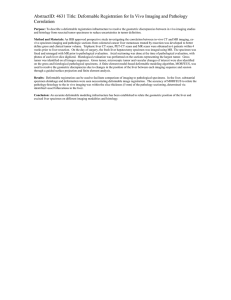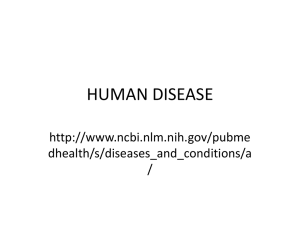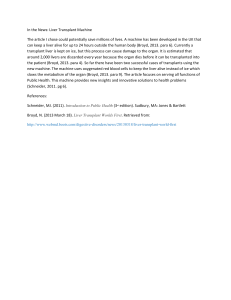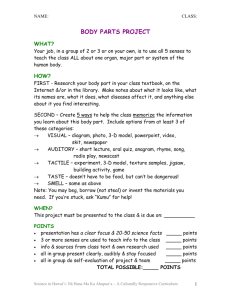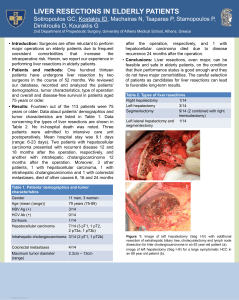AbstractID: 3988 Title: Spatial and Volumetric Comparison of Liver Tumors... MR using Finite Element Based Deformable Image Registration
advertisement
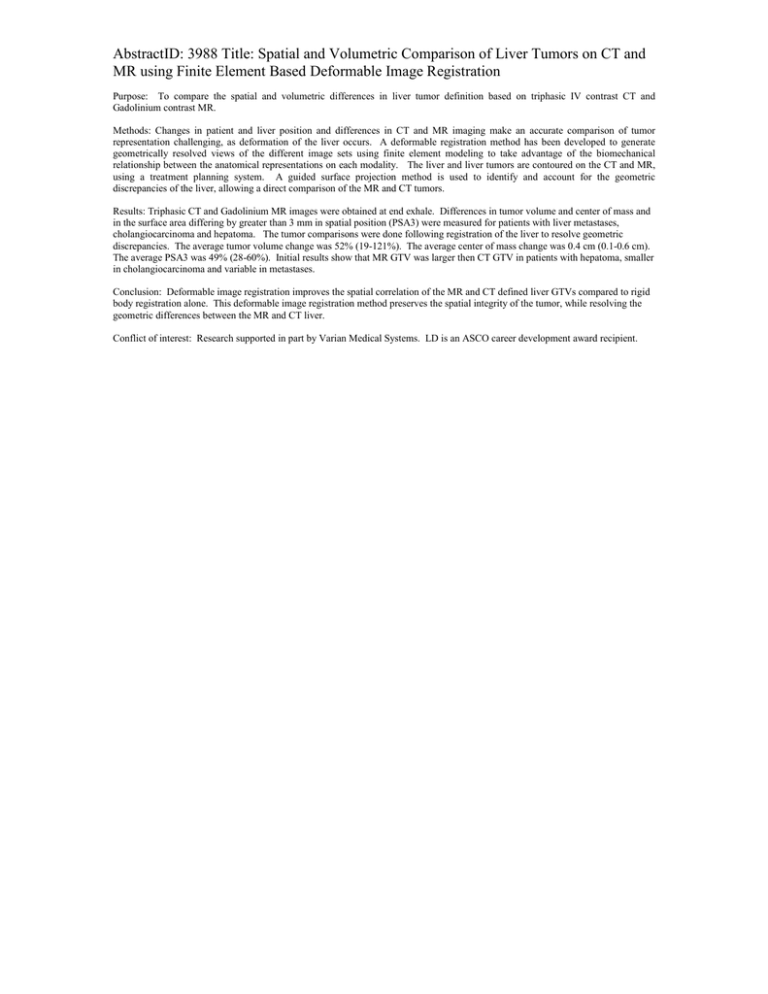
AbstractID: 3988 Title: Spatial and Volumetric Comparison of Liver Tumors on CT and MR using Finite Element Based Deformable Image Registration Purpose: To compare the spatial and volumetric differences in liver tumor definition based on triphasic IV contrast CT and Gadolinium contrast MR. Methods: Changes in patient and liver position and differences in CT and MR imaging make an accurate comparison of tumor representation challenging, as deformation of the liver occurs. A deformable registration method has been developed to generate geometrically resolved views of the different image sets using finite element modeling to take advantage of the biomechanical relationship between the anatomical representations on each modality. The liver and liver tumors are contoured on the CT and MR, using a treatment planning system. A guided surface projection method is used to identify and account for the geometric discrepancies of the liver, allowing a direct comparison of the MR and CT tumors. Results: Triphasic CT and Gadolinium MR images were obtained at end exhale. Differences in tumor volume and center of mass and in the surface area differing by greater than 3 mm in spatial position (PSA3) were measured for patients with liver metastases, cholangiocarcinoma and hepatoma. The tumor comparisons were done following registration of the liver to resolve geometric discrepancies. The average tumor volume change was 52% (19-121%). The average center of mass change was 0.4 cm (0.1-0.6 cm). The average PSA3 was 49% (28-60%). Initial results show that MR GTV was larger then CT GTV in patients with hepatoma, smaller in cholangiocarcinoma and variable in metastases. Conclusion: Deformable image registration improves the spatial correlation of the MR and CT defined liver GTVs compared to rigid body registration alone. This deformable image registration method preserves the spatial integrity of the tumor, while resolving the geometric differences between the MR and CT liver. Conflict of interest: Research supported in part by Varian Medical Systems. LD is an ASCO career development award recipient.
